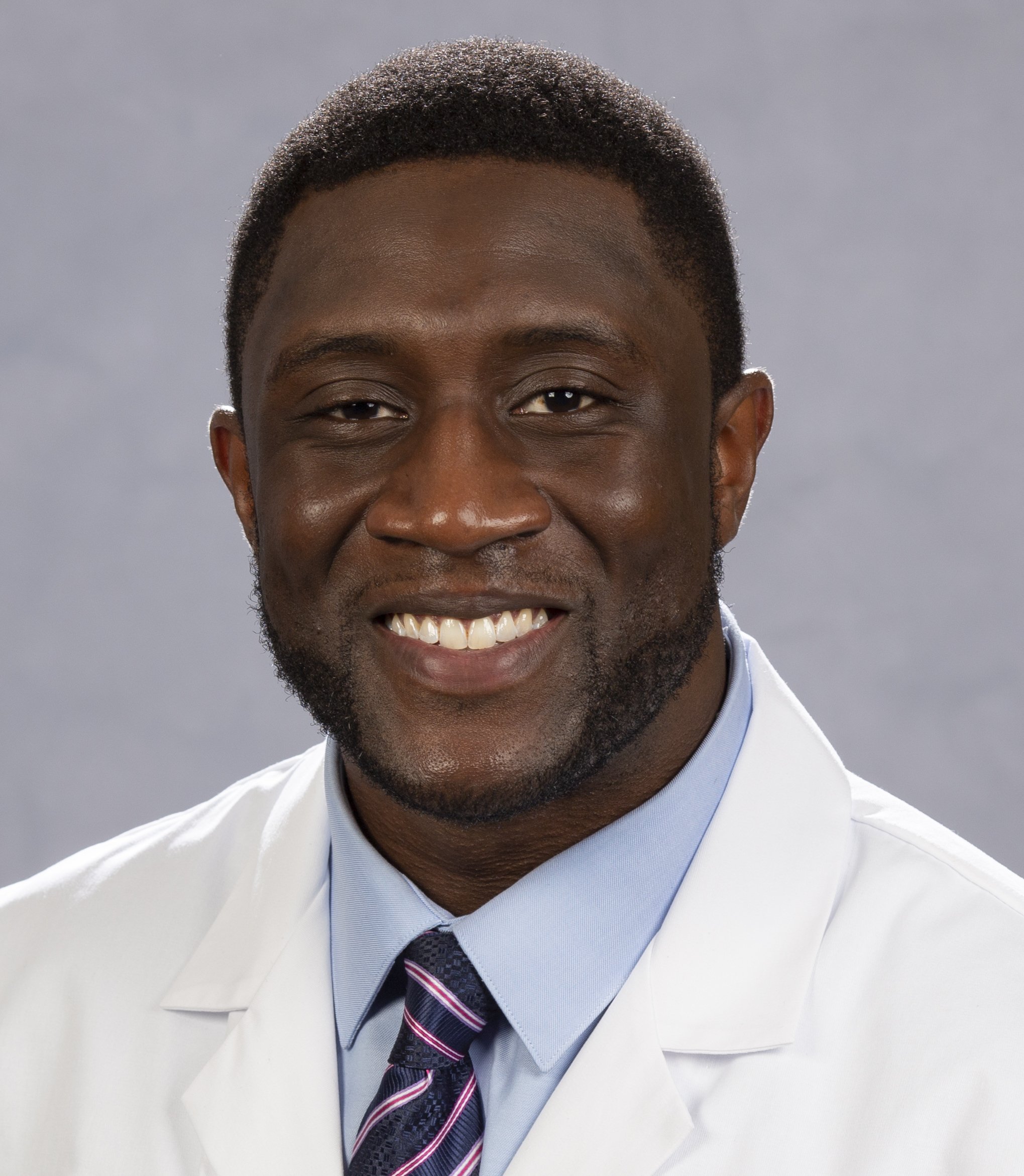Michael Appeadu, MD
Last updated 7/2022
Dr. Appeadu as a young child
-
Pain Fellow at Emory University
-
From a young age, medicine has always seemed to me to be one of the most inspirational careers. I enjoyed science growing up and using one’s knowledge and skills to be a healer motivated me to go to medical school. I developed other interests during college–particularly in the social sciences–which made me rethink my choice at a certain point, but as I came to learn, there are ways to combine interests and balance hobbies while still prioritizing what is most important to you. PM&R residency was my favorite part of this journey, not only because I learned of important ways to restore function to patients while practicing holistic care, but because the excellent community of physiatrists I’ve met has encouraged me to strive to make an impact both inside and outside of the hospital.
-
PM&R is a field that greatly takes into account patients' lives outside of the hospital. Physiatrists are trained to be in tune with various components of patient care-- whether a patient has adequate assistive equipment at home, if their spasticity is interfering with their activities of daily living, or whether their last shoulder injection provided enough relief to perform their job well. Environment, upbringing, and community are all going to play a role in one’s ability to function in society, and unfortunately, through no fault of their own, some patients are going to experience more bumps in the road to recovery than others. This is why equity is important in PM&R. Disparities in healthcare between different communities are very real and have been well documented. Awareness of these disparities is a needed initial step. Being a clinician that puts holistic care into practice requires an understanding of patient barriers. When physiatrists come together and utilize their diverse experiences to create solutions, then patients are truly advocated for. In this way, camaraderie via groups like Representation in Rehab can be a powerful spark to create sweeping, visible improvements in patient care.
-
I plan to practice pain medicine–which PM&R residency serves as an excellent foundation for–after completing fellowship. I’d like to continue to enjoy involvement in PM&R and pain medicine national societies, especially the mentorship components. I’m passionate about being a resource for those coming behind me striving to go into PM&R and medicine in general–particularly those from underrepresented groups. I also aspire to hopefully become more involved in PM&R and pain global health in the future.
-


